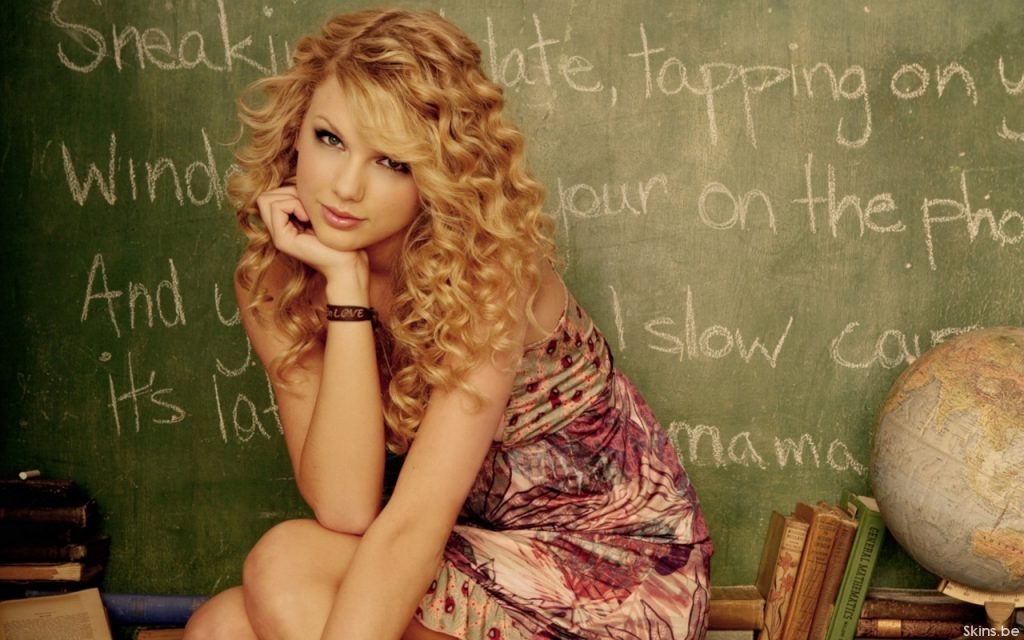It’s no surprise that Taylor Swift has taken over the music industry, but now she is starting to impact college classrooms as well.
Binghamton University is following the lead of other schools, such as the University of Texas and New York University, by offering a Taylor Swift course for students to partake in. The four-credit, writing-intensive class is being offered as a special topics elective in the music department this spring semester. It’s taught by pop and country music scholar Lecturer Phoebe Hughes, who is very passionate about Swift and her impact on the music industry.
Hughes said she loves how Swift has interacted with different parts of the industry throughout her career.
“She started as a young artist in country music from the mid-2000s through the early 2010s,” Hughes said. “This was remarkable because there were not a lot of women artists or young artists in the country industry at this time. She was able to capture a particular fanbase that was very speaking to a lot of young people, especially young women, in ways that were very compelling.”
The elective being offered, a 300-level course for 25 students, is a discussion-based class that involves reading, writing and listening to music. Hughes appreciates the small class size because it can be more challenging to have discussions in large lecture courses, and the class material is more suitable for a smaller group.
In this course, students will be delving into certain themes for each time period and each era of Swift. Derrick Weisburd, a junior majoring in industrial and systems engineering, is taking the class this semester. Weisburd is excited to explore what the class is going to offer but knows it won’t be a cakewalk.
“I can already tell we are going to be diving deep into major socio-political issues, and how Swift’s music plays a part of it,” Weisburd wrote in an e-mail. “It also appears that we’ll be taking a look into how the industry works, which might seem a bit challenging to those who are more passive listeners to her music.”
One topic that will be thoroughly explored is ’90s country, looking into artists such as Carrie Underwood, LeAnn Rimes, Shania Twain and the Chicks. The class will discuss the influence that the radio had on pop culture, and also the gender discrepancies that occurred during this time.
“There was a series of technological changes that happened in the ’90s in terms of popular chart tabulation, and a variety of laws that went into effect that changed how people accessed and listened to the radio, internet and television,” Hughes said. “This had a profound effect on the popular music industry as a whole, but on country music specifically that led to apparent gender discrepancies.”
The class will explore themes from other Swift eras as well. Hughes said that when discussing “Lover,” the class will discuss celebrity activism. When studying the sister albums “evermore” and “folklore,” the students will be focusing on the idea of collaboration and collaborative practices. This includes discussions about featured artists on the records, and also who Swift was working with during the creative process. The class will compare Swift’s discography to other artists during each time period, especially in the 2010s when Swift was at the top of the pop music charts.
“As she progresses through her career, the class will be listening to a lot of [Swift’s] music, and also comparative examples to get a handle on what everything sounded like at the time,” Hughes said. “There will be a fair bit of listening to have a grasp on where [Swift] falls. She is so often stylistically ahead of the curve, so it will be important to have a handle on everything.”
The comparing and contrasting does not stop there. The class will be looking at Swift’s documentaries, and at other pop icons’ documentaries as well, including Beyonce’s. The students will also be comparing Swift to her past self by discussing the re-recordings that have come out thus far, “Fearless” and “Red” — Taylor’s Version, of course — and will even get to spend a whole day listening to every version of “All Too Well,” though students might need to bring some tissues for that class.
With assignments like writing about their first Swift experience, there is no doubt that Swifties will enjoy taking the course. However, this class also explores many relevant themes and issues in today’s society, including race, gender, sexuality and more.
“The students are not writing as fans, journalists or critics, but really as scholars,” Hughes said. “We are engaging with the material on a different level. The class will be very fun for fans, but a very thorough and insightful class for everyone involved, even if they are not fans.”



